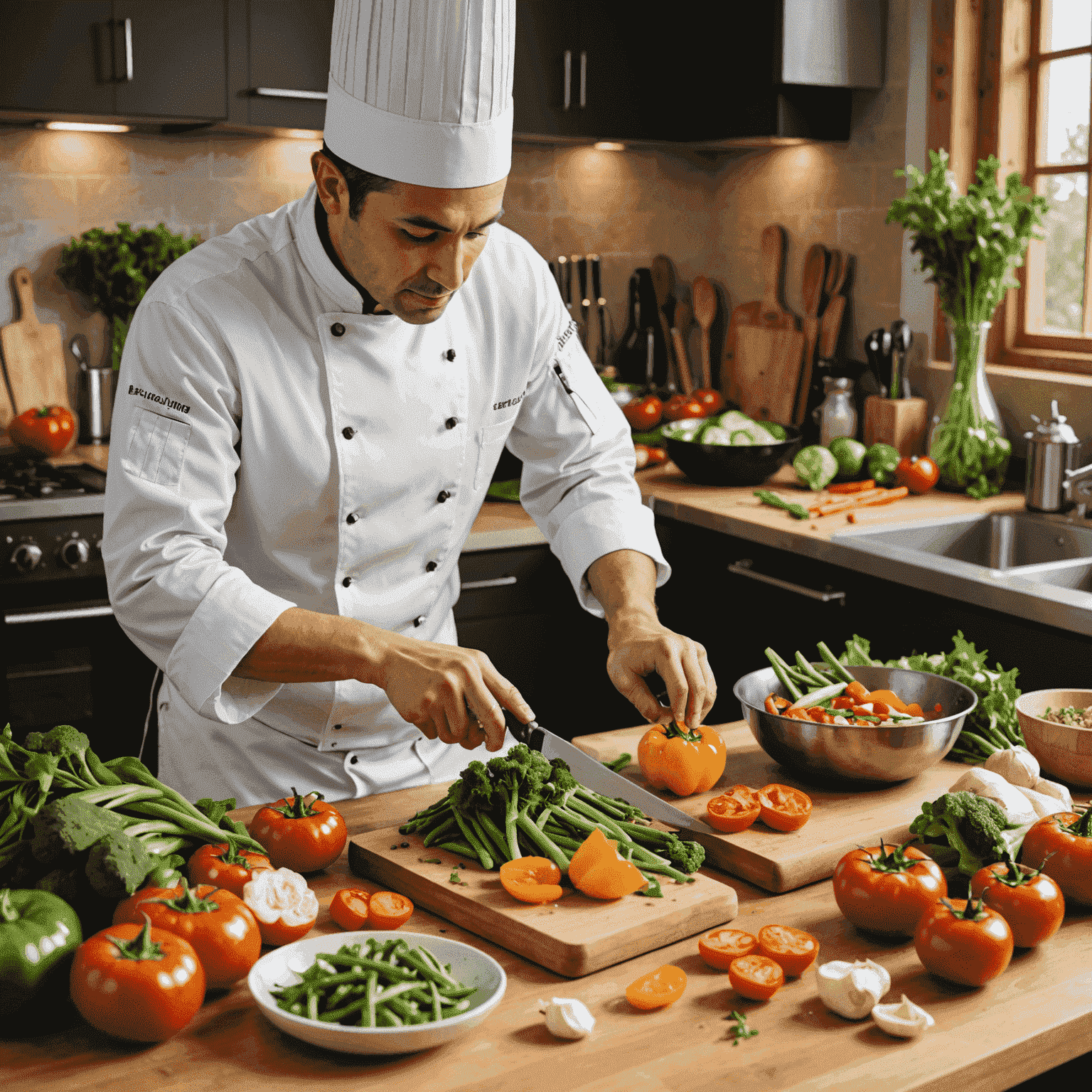Sustainable Cooking Practices: A Guide for Eco-Conscious Chefs

In today's world, where environmental concerns are at the forefront, chefs and home cooks alike are seeking ways to make their culinary practices more sustainable. This guide will explore eco-friendly cooking methods and sustainable ingredient sourcing to help you reduce your environmental impact while creating delicious meals.
Eco-Friendly Cooking Methods
1. Energy-Efficient Appliances
Invest in energy-efficient kitchen appliances, such as induction cooktops and convection ovens. These appliances use less energy and cook food faster, reducing your overall energy consumption.
2. Pressure Cooking
Utilize pressure cookers to prepare meals quickly and efficiently. They use less water and energy compared to traditional cooking methods, making them an excellent choice for eco-conscious chefs.
3. Slow Cooking
Embrace slow cooking techniques using crockpots or slow cookers. These appliances use minimal energy over extended periods, resulting in tender, flavorful dishes with less environmental impact.
4. One-Pot Meals
Prepare one-pot meals to reduce water usage and energy consumption. This method not only saves resources but also minimizes cleanup time and effort.
Sustainable Ingredient Sourcing
1. Local and Seasonal Produce
Choose locally grown, seasonal fruits and vegetables to reduce transportation emissions and support local farmers. Visit farmers' markets or join a community-supported agriculture (CSA) program to access fresh, sustainable produce.
2. Sustainable Seafood
When incorporating seafood into your dishes, opt for sustainably sourced options. Look for certifications like MSC (Marine Stewardship Council) or consult seafood guides to make informed choices.
3. Plant-Based Proteins
Incorporate more plant-based proteins into your cooking. Legumes, nuts, and seeds are excellent alternatives to meat and have a lower environmental impact.
4. Organic and Ethically Sourced Ingredients
Choose organic ingredients when possible, and look for ethically sourced products like fair-trade coffee and chocolate. These choices support sustainable farming practices and fair labor conditions.
Reducing Food Waste
An essential aspect of sustainable cooking is minimizing food waste. Here are some tips to help you make the most of your ingredients:
- Plan your meals and shop with a list to avoid overbuying.
- Use vegetable scraps to make homemade stock.
- Preserve excess produce through canning, freezing, or dehydrating.
- Compost food scraps that can't be used in cooking.
Zairute's Sustainable Cooking Tips
At Zircati, we believe in the power of sustainable cooking to create delicious meals while protecting our planet. By implementing these eco-friendly practices in your kitchen, you'll not only reduce your environmental impact but also discover new flavors and techniques that will elevate your culinary creations.
Remember, sustainable cooking is a journey, not a destination. Start small by incorporating one or two of these practices into your routine, and gradually build upon them. With time and dedication, you'll become a master of eco-friendly cooking, creating meals that are both delicious and environmentally responsible.